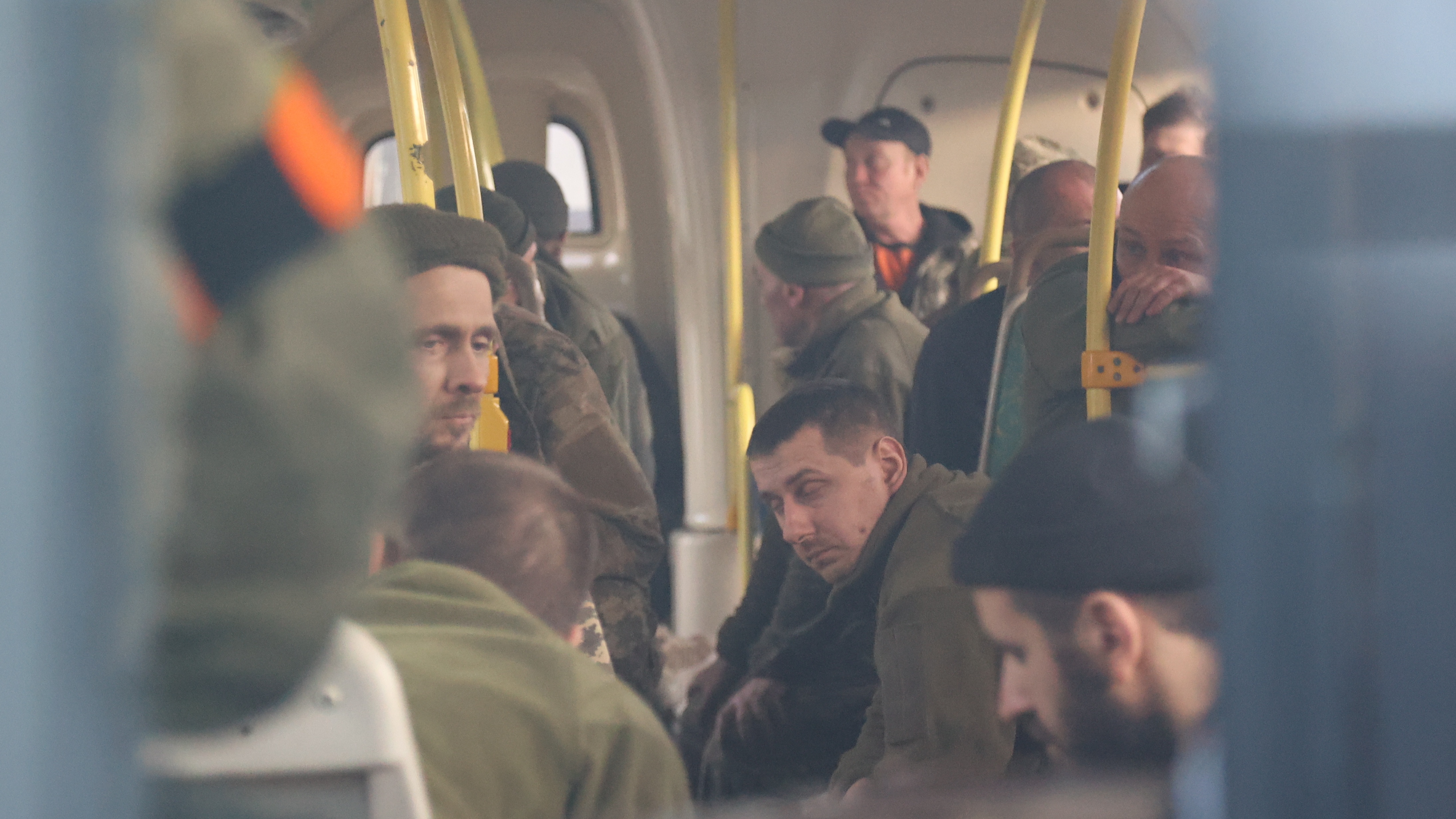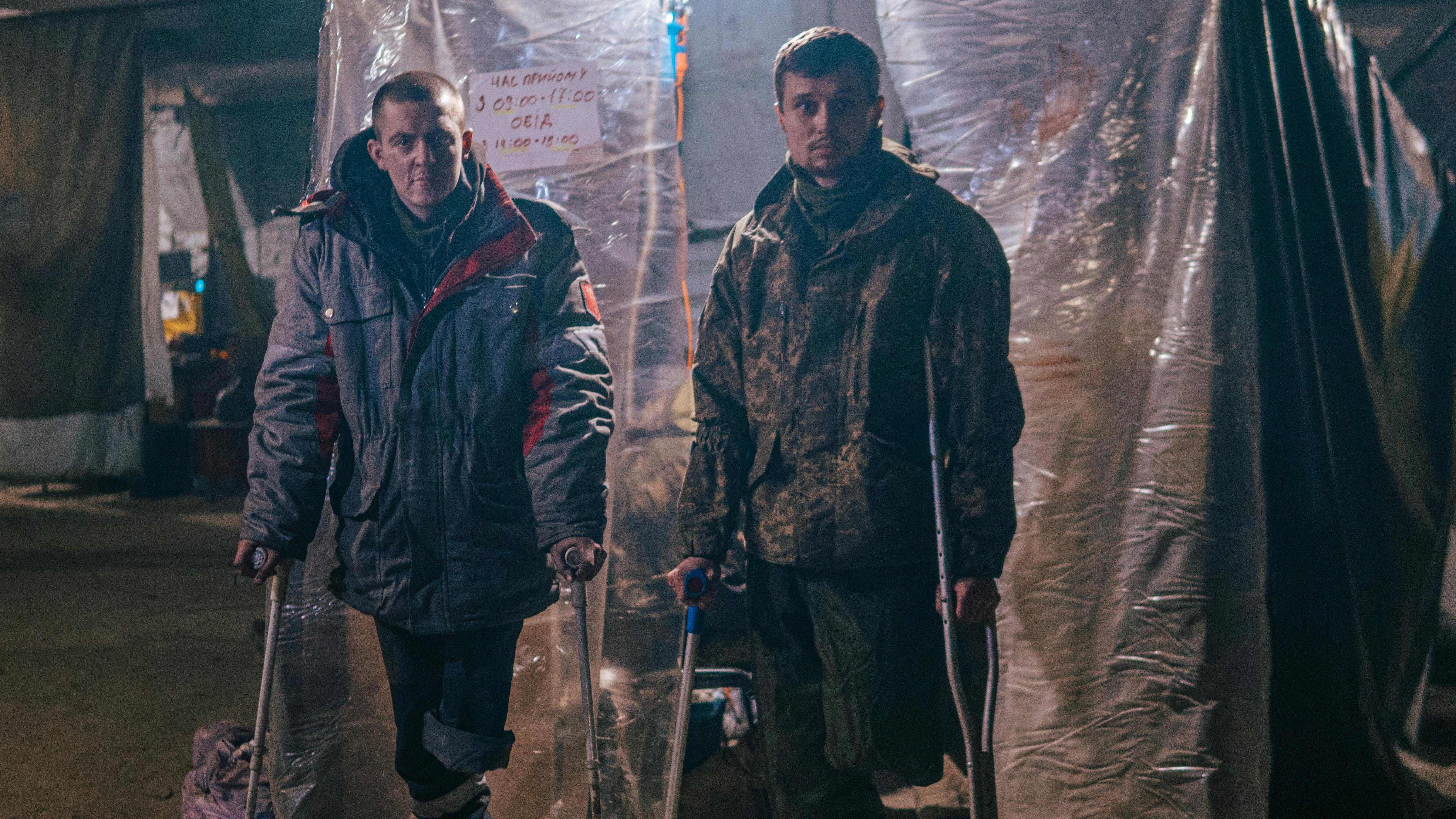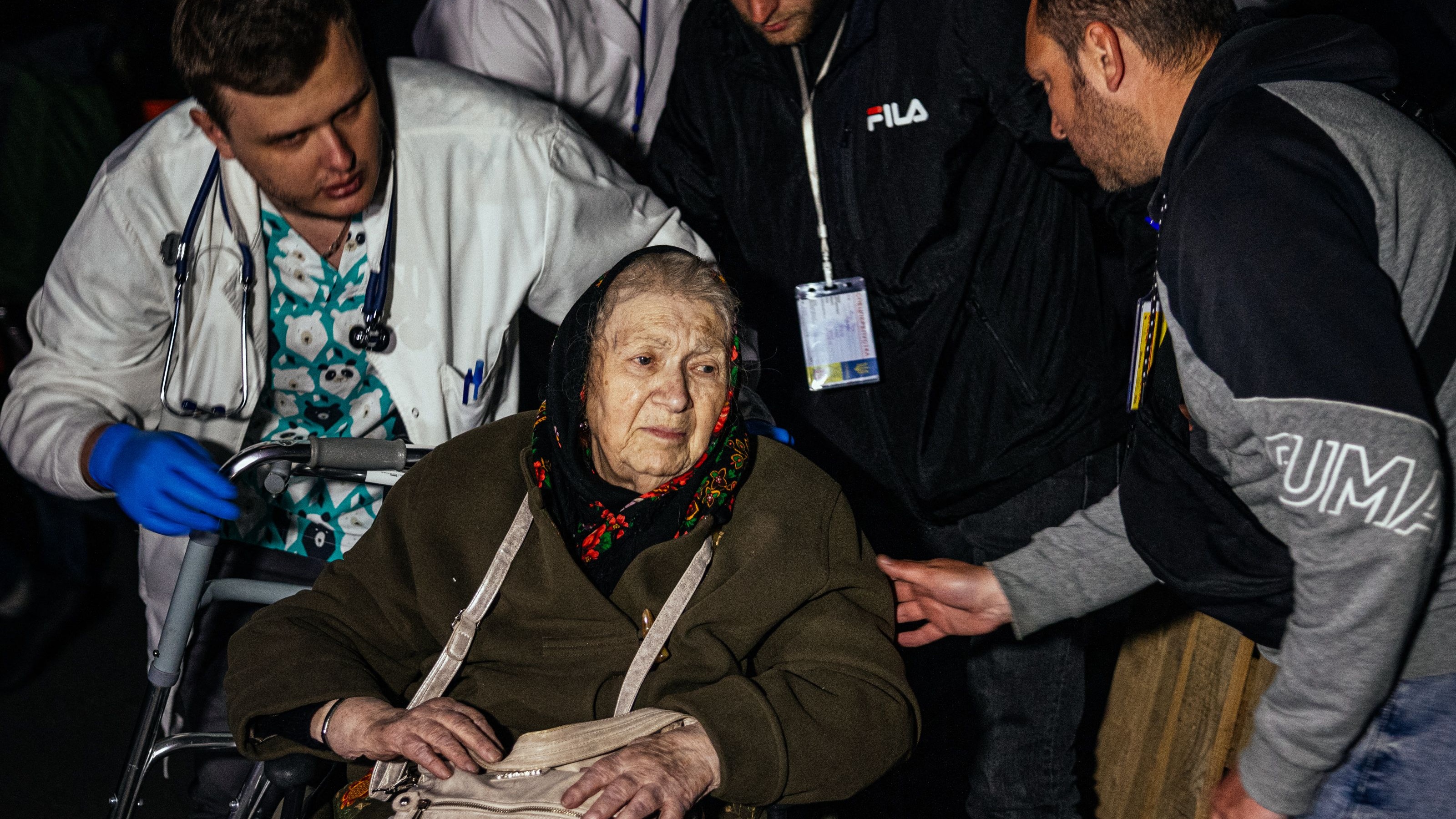What will happen to Ukraine’s captured Mariupol troops?
Russian MPs call for fighters evacuated from Azovstal steelworks to be put to death

A free daily email with the biggest news stories of the day – and the best features from TheWeek.com
You are now subscribed
Your newsletter sign-up was successful
Ukraine is doing “everything possible and impossible” to save troops being evacuated from the besieged Azovstal steel works to areas controlled by Russian-backed separatists, a senior official has said.
More than 260 soldiers have been taken from the massive factory complex since Monday after spending 82 days under relentless bombing. Petro Andryushchenko, an advisor to Mariupol’s mayor, has also accused Moscow of deploying phosphorus bombs in an effort to force the troops out of the steel works.
According to Reuters, 256 fighters were evacuated on Monday and seven buses left the site yesterday. But fear is growing over what will happen next after Russian prosecutors said they would be questioned in an investigation into what Moscow has called “Ukrainian regime crimes against Donbas civilians”, the BBC reported.
The Week
Escape your echo chamber. Get the facts behind the news, plus analysis from multiple perspectives.

Sign up for The Week's Free Newsletters
From our morning news briefing to a weekly Good News Newsletter, get the best of The Week delivered directly to your inbox.
From our morning news briefing to a weekly Good News Newsletter, get the best of The Week delivered directly to your inbox.
Prisoners of war
Hundreds of Ukrainian soldiers, including troops from the Marines, National Guard, Azov regiment, border guards, police and territorial defence units, have been “holed up” inside the steel works since Mariupol was surrounded in early March, the BBC said.
Also caught up in the fighting were “a number of civilians with young children”.
A “sprawling four-square-mile complex” that was “designed to survive a nuclear war”, the “maze of tunnels” has faced an intense Russian bombardment, the broadcaster added, resulting in widespread injuries and shortages of key medical provisions.
The soldiers, some of whom were “carried on stretchers”, ended their “weeks of resistance” on Monday, The Times said, bringing to an end “the most devastating siege of Russia’s war” so far.
A free daily email with the biggest news stories of the day – and the best features from TheWeek.com
They have since been transferred to a former penal colony in the Russian-controlled town of Olenivka near Donetsk, according to Reuters.

Ukraine has said it wants the troops “to be exchanged for captured Russian soldiers as part of an evacuation deal confirmed by Moscow”, the BBC reported.
Deputy Defence Minister Hanna Maliar said Kyiv was doing “everything possible and impossible” to bring them home, adding that authorities are aware of the number of troops still inside the steel works.
Describing the soldiers as “our heroes”, she said: “We understand the scope of the rescue operation, but it is also sensitive information, and it will not be disclosed until the rescue operation is completed.”
Death penalty
While officials in Ukraine are working to secure the release of the captured troops, Russian MPs and former military commanders have “urged Vladimir Putin to tear up plans for a prisoner swap”, The Telegraph reported.
Russian “hardliners” have instead “called for the death penalty for the soldiers”, the paper said, ‘who have been portrayed as Nazis by the Kremlin to justify the invasion”.
Leonid Slutsky, a prominent MP and a deputy of the State Duma, said: “In case their horrendous crimes against humanity are proven, I would like to revive my idea to lift the moratorium on capital punishment in Russia and let the court consider using it.”
Igor Girkin, a retired Russian military intelligence officer who fought in eastern Ukraine in 2014, shared a post on Telegram that said: “Azov is one of the best-trained battalions whose main goal is to eliminate all Russian and Soviet people. That’s why no one of them can stay alive. Not a single one of them.”
The ex-senior military figure wrote that he agreed with “every word” of the post.
Vyacheslav Volodin, chair of the State Duma, also joined the chorus of voices calling for the soldiers to be put to death, telling the Russian parliament that the “Nazi criminals” should not be liable for a prisoner swap. “These are war criminals. We should do our best to get them to face justice,” he added.
Putin did not comment on the calls for the prisoners of war to face the death penalty, saying only that they would be treated “in line with the relevant international laws”.
‘Pyrrhic victory’
Mykhailo Podolyak, a senior adviser to President Volodymyr Zelenskyy, celebrated the captured fighters’ bravery, telling reporters that their refusal to flee from the steel works bought valuable time for the Ukrainian armed forces.
“Azovstal defenders ruined Russia’s plan to capture the east of Ukraine, took a hit on themselves and proved the real combat capability of Ukraine,” he said. “This completely changed the course of the war.”
Zelenskyy said in a video address last night that Ukrainian military, intelligence and negotiating teams, aided by the Red Cross and the UN, are all involved in the evacuation operation, adding: “Ukraine needs its heroes alive.”

Ukrainian MP Lesia Vasylenko told the BBC that it was vital a deal is struck for the soldiers, warning that anything less would mean “the fate of these very brave men will be absolutely unknown and will be in Russian hands, which is far from an ideal situation”.
Whatever happens next, “the resolute defence of the Azovstal steel works” has come to “represent a broader Ukrainian defiance”, said The Times’s Middle East correspondent Richard Spencer.
Since the invasion began, “Russian advances have met a resistance on the Ukrainian side that is both military and political”. And that opposition has allowed “Ukraine’s leadership to win sympathy and then military support from around the world”.
Putin may now be able to claim “victory over Azovstal” and the “capture of Mariupol”, Spencer added. But the portrayal of the city’s defenders around the globe has ensured that the triumph of Russia’s invaders will remain a “pyrrhic” one.
-
 The ‘ravenous’ demand for Cornish minerals
The ‘ravenous’ demand for Cornish mineralsUnder the Radar Growing need for critical minerals to power tech has intensified ‘appetite’ for lithium, which could be a ‘huge boon’ for local economy
-
 Why are election experts taking Trump’s midterm threats seriously?
Why are election experts taking Trump’s midterm threats seriously?IN THE SPOTLIGHT As the president muses about polling place deployments and a centralized electoral system aimed at one-party control, lawmakers are taking this administration at its word
-
 ‘Restaurateurs have become millionaires’
‘Restaurateurs have become millionaires’Instant Opinion Opinion, comment and editorials of the day
-
 Putin’s shadow war
Putin’s shadow warFeature The Kremlin is waging a campaign of sabotage and subversion against Ukraine’s allies in the West
-
 Alexei Navalny and Russia’s history of poisonings
Alexei Navalny and Russia’s history of poisoningsThe Explainer ‘Precise’ and ‘deniable’, the Kremlin’s use of poison to silence critics has become a ’geopolitical signature flourish’
-
 What happens now that the US-Russia nuclear treaty is expiring?
What happens now that the US-Russia nuclear treaty is expiring?TODAY’S BIG QUESTION Weapons experts worry that the end of the New START treaty marks the beginning of a 21st-century atomic arms race
-
 Epstein files topple law CEO, roil UK government
Epstein files topple law CEO, roil UK governmentSpeed Read Peter Mandelson, Britain’s former ambassador to the US, is caught up in the scandal
-
 Iran and US prepare to meet after skirmishes
Iran and US prepare to meet after skirmishesSpeed Read The incident comes amid heightened tensions in the Middle East
-
 Israel retrieves final hostage’s body from Gaza
Israel retrieves final hostage’s body from GazaSpeed Read The 24-year-old police officer was killed during the initial Hamas attack
-
 China’s Xi targets top general in growing purge
China’s Xi targets top general in growing purgeSpeed Read Zhang Youxia is being investigated over ‘grave violations’ of the law
-
 Ukraine, US and Russia: do rare trilateral talks mean peace is possible?
Ukraine, US and Russia: do rare trilateral talks mean peace is possible?Rush to meet signals potential agreement but scepticism of Russian motives remain